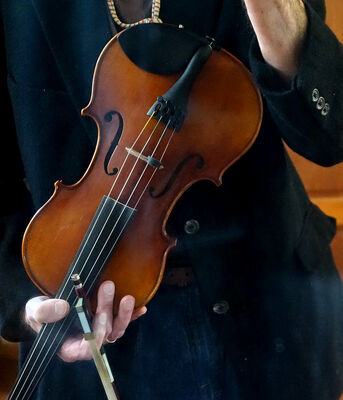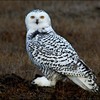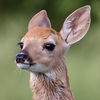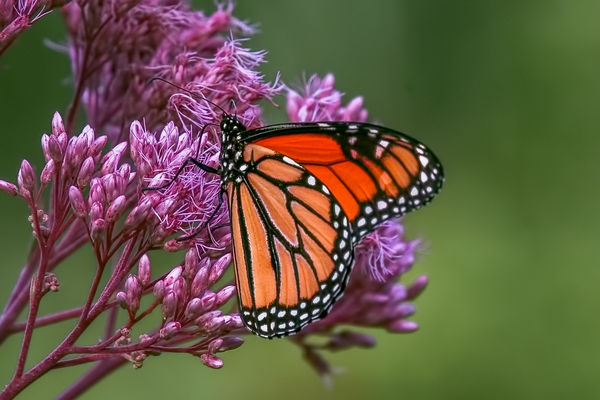Bouquet? Bokeh? Bokah? Smokah!
Jan 9, 2018 17:14:12 #
Jan 9, 2018 17:23:55 #
Well your reply was awfully long, but I forced my dwindling concentration capability and got thru it all. I certainly have nothing against Japanese words per se, but nuff said. Yeah, I did kind of open a can of worms, but I also like to think that it was I, me, myself who screamed out loud that the Emperor has no clothes!
Jan 9, 2018 18:17:24 #
It's a fad, just as is the idolatry of lenses we tossed out years ago. The fact there is a kickstarter program for a manual camera with a top speed of 1/500th when there are tons of SLRs out there for $15 is further evidence that there are a lot of people born long after 1975!
Jan 9, 2018 18:43:36 #
kymarto wrote:
I would say that "improved" bokeh is totally a matter of judgement. Many people prefer bokeh that is less smooth than modern designs render it, which is, at best, very nondescript. The Dallmeyer Super Sixes, which have what some would consider the "worst" bokeh imaginable, are some of the highest priced lenses in existence. A 200mm Super Six recently sold for $158K. And that is because of its cult status as a "bokeh monster".
Add me to the list thanking you for the wonderful images and your knowledge and perspective. Photography is a creative outlet for me as well as a nuts and bolts way to document my furniture and instrument builds when I want max DOF. Example: the tuners and bridge both in focus right down the fingerboard.
Jan 11, 2018 00:49:12 #
Wowzer! I try not to get too excited by other folks photos but these shots ring my bell. I had never heard the term "bokeh" until recently but I'm all in. I recently moved into full-frame digital with the purchase of a used Nikon d700. Anybody got any suggestions on which lens a person who wants to experiment with bokeh should have? And I'll admit, I'm still not sure what bokeh even is but I sure like the way it looks in those photos and I want to mess around some with the effect. I'm suffering from the "old dog-new trick" syndrome so please forgive me if some of my questions seem uneducated.
Jan 11, 2018 00:56:19 #
Here's one source: https://www.diyphotography.net/9-lenses-special-bokeh/
Search on "best bokeh lenses" for more.
Search on "best bokeh lenses" for more.
Jan 11, 2018 01:50:03 #
Shel B wrote:
Wowzer! I try not to get too excited by other fol... (show quote)
Kymarto has a wonderful understanding of the various characteristics that bokeh can present and most importantly how to match them to a specific subject and composition.
Note in particular his discussion of the idea of "improved bokeh", which is a mind's eye concept rather than any universal reality. His images often generate abject beauty from what everyone would call "bad" bokeh on a normal basis.
That is very important for your query about a lens to experiment with. Do you want only one lens? Or would several hopefully inexpensive lenses be more fun and more productive? Certainly a nice creamy smooth lens is useful, but it is also very confining too.
If you only want one lens maybe a 135mm f/2 DC would be the most versatile. It can be smooth but if it is adjusted so the foreground is smooth, the background is not! You can take your pick.
But there are a lot of older, and inexpensive, lenses using Pentax or Leica screw mounts that can be adapted to a Nikon D700 for manual use. Some may have smooth bokeh wide open and several variations as it is stopped down.
Do a lot of reading first, to decide what will actually be the most fun and the most productive for your purposes
Jan 11, 2018 15:10:16 #
Thanks. I had not thought of using other lenses with screw mounts in a Nikon adaptor. I have no problem using old lenses as ALL the lenses I currently use are from the olden days...70s and 80s.
Jan 11, 2018 15:55:43 #
Shel B wrote:
Thanks. I had not thought of using other lenses with screw mounts in a Nikon adaptor. I have no problem using old lenses as ALL the lenses I currently use are from the olden days...70s and 80s.
I have used several old film lenses on my Canon dlsr with good results. They allow you to use the meter and you have to focus manually. It seems a lot of people have a problem with manual focus. But that is for another day. So put those old Pentax and Practica lenses on and wallow in the artistic Bokeh!! Creamy, swirly blur!
Jan 11, 2018 20:12:24 #
graybeard wrote:
Creamy, swirly blur? Good grief, 14 pages and you still don't get it. Go back to Valinor.I have used several old film lenses on my Canon dlsr with good results. They allow you to use the meter and you have to focus manually. It seems a lot of people have a problem with manual focus. But that is for another day. So put those old Pentax and Practica lenses on and wallow in the artistic Bokeh!! Creamy, swirly blur!
Jan 12, 2018 15:08:18 #
I can say that this was an interesting discussion on bokeh. I was astonished and somewhat embarrassed that I began photography in 1970 and studied it quite seriously and had never heard the word bokeh. I did have a sabbatical from photography due to career requirements from about 1985-2010 or thereabouts. In about 2010 I jumped back into photography with no clue what digital was all about. I had no idea that there were full frame and half frame digital cameras. Then about a month or so ago I heard of bokeh. I rolled my eyes and forgot about it until this discussion surfaced. I asked a few questions on UHH, just to show my ignorance and you folks were super helpful. I spent all last night reading everything I could find on bokeh and came to a few conclusions. Now this info is just from what I read and not personal experience but it might be helpful to new folks who wonder what we are talking about. The reason I had never heard of the word is that "bokeh" was first used in about 1998. Here's my definition of bokeh: The artistic rendering of the area in front of or behind the subject of the photo that is out of focus...especially those bright areas that can be rendered as bright or colorful circles. Now that might not be a technical definition but I think it describes bokeh fairly well. If you disagree, please comment. How to produce great bokeh? Use some or all of the following steps: 1. Use the maximum aperture of the lens. 2. Use a moderate telephoto...85-135 on a full frame camera. 3.Get close to the subject. 4. Make sure there is some distance between the subject and the background. 5. Make sure there are bright areas in the background..such city lights or sunlight coming through tree leaves. Oh, the lens does matter but you can produce bokeh with almost any lens. Not sure about wide angles. It is best to use a lens with at least 7 aperture leaves as the more leaves (is that the right word) in the lens, the more the points of light will tend to be completely round. I actually made a long list of lenses that produce good bokeh, according to the folks who use them. If you are interested, comment and I'll post the list. Again, I got the list from the folks who use the lenses. Well, that's about what I learned from 8 hours of research. Hope it helps someone. If I bored you, sorry. Again, I want to thank everyone who has taken the time to reply to my questions about digital photography. They are many. And I will have more concerning post camera manipulation.
Jan 12, 2018 16:55:34 #
Shel B wrote:
I can say that this was an interesting discussion ... (show quote)
Bro, the only difference between then and now is this: what they used to call background is now called "Bookay". They can't even agree on the spelling.
Jan 12, 2018 16:57:35 #
graybeard wrote:
Bro, the only difference between then and now is this: what they used to call background is now called "Bookay". They can't even agree on the spelling.
Again bokeh is not the background but rather the quality of the out of focus areas usually the highlights or lights in the background.
Jan 12, 2018 17:44:35 #
graybeard wrote:
Bro, the only difference between then and now is this: what they used to call background is now called "Bookay". They can't even agree on the spelling.
This is not correct. Following are (1) a "plain" blurred background (no blurred points of light) and (2) a background with bokeh (blurred points of light). If there were not a difference, there would be no point in having two words. But there is a point and it should be obvious. What is true is that the word bokey is frequently misused to mean any blurred background, but that is not the word's problem--that's an issue with those using the word.
I'm not sure why the first one shows in the post but the 2nd requires to click the word "Download."
Jan 12, 2018 17:58:53 #
I think a lot of us old film photogs had been using those techniques. We just didn't know it had a name. And I'm not sure it had a name until 1998. At any rate, the skillful rendering of bokeh can be very cool.
If you want to reply, then register here. Registration is free and your account is created instantly, so you can post right away.






